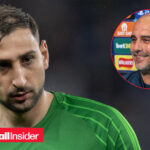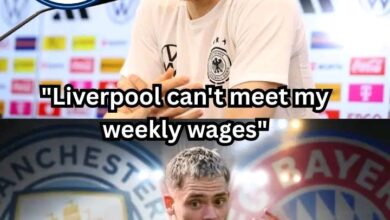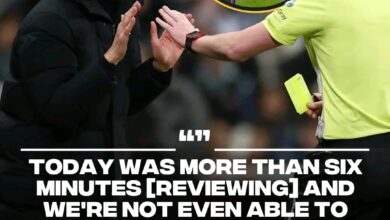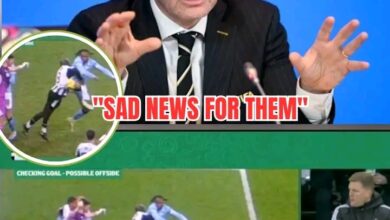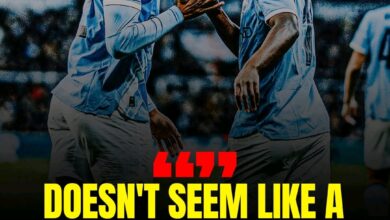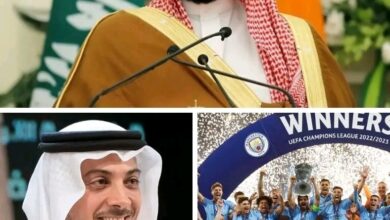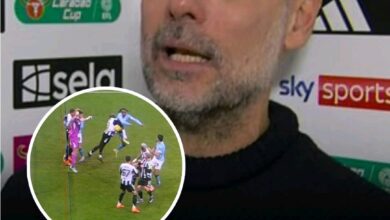Man City star makes his feelings clear on club signing Gianluigi Donnarumma as goalkeeper announces PSG departure
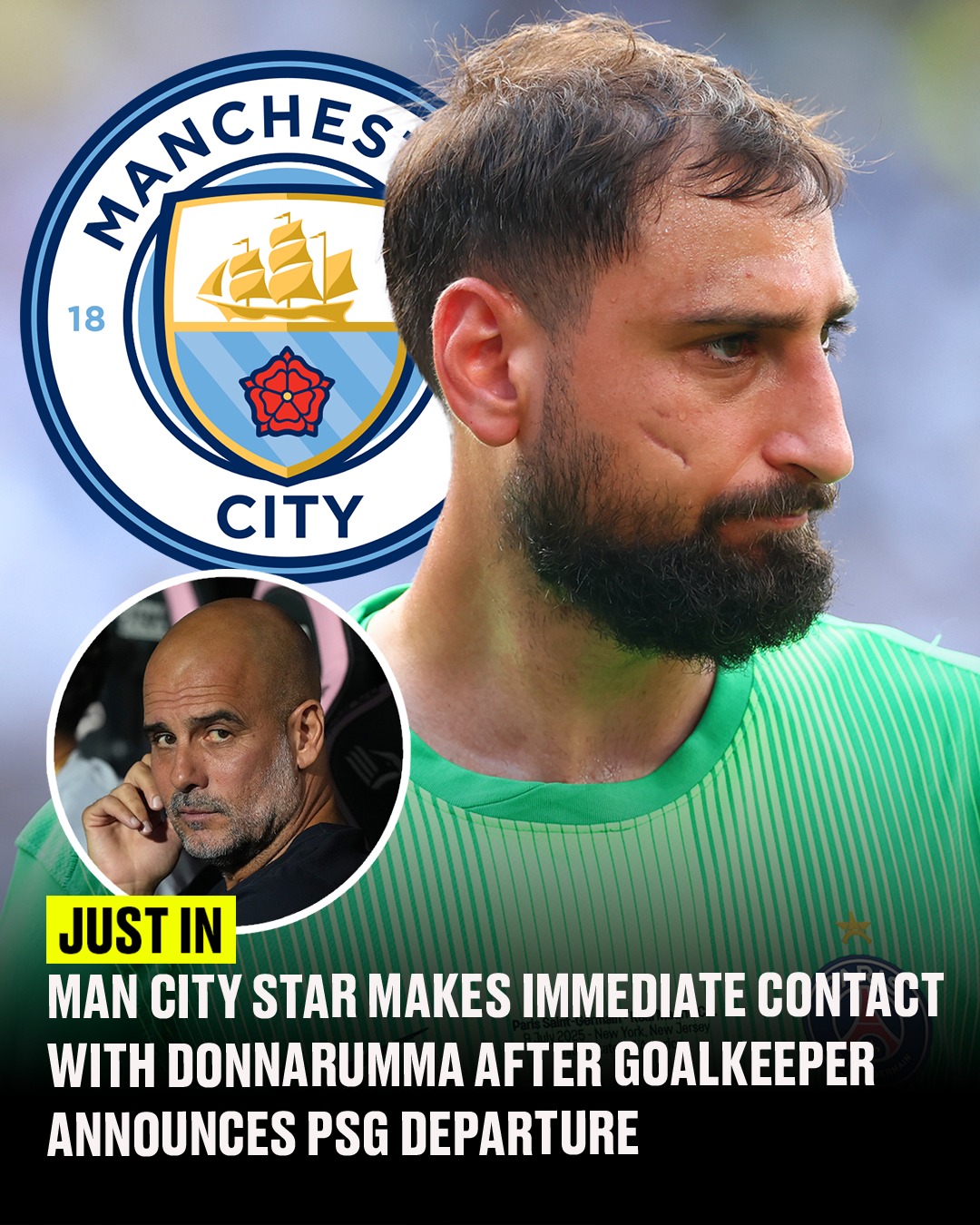
The footballing world was sent into a frenzy this week when Gianluigi Donnarumma, one of Europe’s most accomplished goalkeepers, found himself at the center of a dramatic fallout with Paris Saint-Germain management. What started as whispers about potential squad changes has evolved into a full-blown crisis that could reshape the goalkeeper market and provide Manchester City with an unexpected opportunity to strengthen their already formidable squad.
The 26-year-old Italian international, who has been instrumental in PSG’s recent success including their historic Champions League triumph, released a passionate and damning statement on social media following his shock omission from the squad for the Super Cup clash against Tottenham Hotspur. His words painted a picture of a player betrayed by the very club he helped reach the pinnacle of European football, setting the stage for what promises to be one of the summer’s most significant transfer sagas.
The Catalyst: Luis Enrique’s Bold Decision
The roots of this dramatic situation can be traced back to Tuesday when PSG manager Luis Enrique made the surprising announcement that Donnarumma would not be included in the squad for their prestigious Super Cup fixture. In a move that stunned both supporters and media alike, the Spanish tactician took full responsibility for the decision, stating unequivocally that it was his choice and his alone.
“Donnarumma is out of the squad as it’s my own decision, I am 100% responsible,” Enrique declared to reporters, his words carrying the weight of a decision that would reverberate throughout the football community. The manager’s candid admission that he wanted “a different kind of goalkeeper” sent shockwaves through the PSG fanbase and immediately sparked speculation about the Italian’s future at the Parc des Princes.
This public declaration represented more than just a tactical decision; it was a clear statement of intent from Enrique regarding his vision for PSG’s future. The Spanish coach, known for his uncompromising approach and willingness to make difficult decisions, had effectively signaled that even a goalkeeper of Donnarumma’s caliber was not indispensable if he didn’t fit the specific profile required for his tactical system.
The timing of this announcement was particularly striking, coming just ahead of a major fixture that would traditionally be seen as an opportunity to field the strongest possible lineup. By excluding Donnarumma from such a high-profile match, Enrique sent an unmistakable message that his commitment to implementing his preferred style of play superseded individual reputations or past contributions.
Donnarumma’s Emotional Response
The Italian goalkeeper’s response to his exclusion was both immediate and emotionally charged, demonstrating the depth of his investment in the PSG project and his disappointment at how the situation had unfolded. His Instagram statement, posted on Wednesday evening, provided a rare glimpse into the personal toll of professional football decisions at the highest level.
“From the first day I arrived, I gave everything – on and off the pitch – to earn my place and defend the goal of Paris Saint-Germain,” Donnarumma wrote, his words reflecting the frustration of a player who felt his contributions had been undervalued. The statement continued with a tone of resignation mixed with defiance: “Unfortunately, someone has decided that I can no longer be part of the group and contribute to the team’s success. I am disappointed and disheartened.”
The goalkeeper’s message went beyond mere disappointment, touching on themes of loyalty, belonging, and the bonds formed during his time in the French capital. His hope to “look the fans at the Parc des Princes in the eyes one more time and say goodbye as it should be done” revealed a player who understood the significance of his relationship with supporters and the importance of proper closure.
Perhaps most poignantly, Donnarumma’s tribute to his teammates as his “second family” and his acknowledgment of “every battle, every laugh, every moment we shared” painted a picture of genuine connections that transcended professional obligations. This emotional depth added weight to his assertion that “playing for this club and living in this city has been an immense honour,” making his forced departure all the more dramatic.
The public nature of this statement also represented a calculated risk, as it directly contradicted the narrative that might have emerged from the club’s official communications. By taking control of his own story, Donnarumma demonstrated both his media savvy and his determination to ensure his version of events reached the public domain.
Manchester City’s Strategic Interest
Against this backdrop of Parisian drama, Manchester City have emerged as potential beneficiaries of PSG’s internal turmoil. According to transfer specialist Fabrizio Romano, City have already made contact regarding a potential deal for the displaced goalkeeper, with PSG reportedly demanding €50 million for his services. This development represents a significant opportunity for Pep Guardiola’s side to acquire a world-class goalkeeper at a time when such talents rarely become available.
The Citizens’ interest in Donnarumma is not entirely surprising given their ongoing evaluation of the goalkeeper position. While Ederson has been a crucial component of City’s success in recent years, contributing significantly to their possession-based style with his exceptional distribution skills, there have been persistent rumors linking the Brazilian with a potential move to Turkish giants Galatasaray. This uncertainty has naturally led City’s management to explore contingency plans, with Donnarumma representing an elite-level option.
City’s pursuit of the Italian would be contingent on Ederson’s departure, reflecting the club’s careful approach to squad management and financial planning. This conditional interest demonstrates the strategic thinking that has characterized City’s transfer policy under the current regime, avoiding unnecessary expenditure while ensuring they remain competitive in all positions.
The potential acquisition of Donnarumma would represent more than just a like-for-like replacement for Ederson. The Italian brings a different skill set and approach to goalkeeping, potentially offering Guardiola new tactical options and flexibility in how City approach their defensive setup. His experience at the highest level, including his contributions to Italy’s European Championship success and PSG’s Champions League triumph, would add valuable depth to an already accomplished squad.
From a commercial perspective, signing Donnarumma would also represent a significant coup for Manchester City. The Italian is not only a world-class performer but also a marketable figure who would enhance the club’s global profile, particularly in the lucrative Italian market. His arrival would generate significant media attention and fan engagement, providing additional value beyond his on-field contributions.
The Haaland Connection: Social Media Speculation
One of the most intriguing aspects of this developing story has been the involvement, albeit peripheral, of Manchester City striker Erling Haaland. Eagle-eyed social media users noticed that the Norwegian had liked Donnarumma’s emotional Instagram statement, a seemingly innocuous action that has nevertheless fueled speculation about City’s interest in the goalkeeper.
While social media interactions between professional footballers are often casual and don’t necessarily indicate transfer discussions, the timing of Haaland’s engagement with Donnarumma’s post has not gone unnoticed by fans and media alike. The fact that the two players have rarely shared the pitch and have no obvious professional connection makes this interaction particularly noteworthy.
The speculation surrounding Haaland’s social media activity reflects the modern reality of football transfers, where every digital interaction is scrutinized for potential clues about future moves. In an era where players are increasingly conscious of their social media presence and its potential implications, Haaland’s decision to like the post could be interpreted as anything from genuine sympathy for a fellow professional to a subtle indication of potential future collaboration.
This incident also highlights the interconnected nature of modern football, where players from different leagues and clubs maintain relationships that transcend traditional boundaries. Haaland and Donnarumma, both in their mid-twenties and representing the current generation of football superstars, may well have developed a friendship through various international gatherings, award ceremonies, or mutual connections within the sport.
The Norwegian striker’s involvement in this story, however tangential, adds another layer of intrigue to what is already a compelling transfer narrative. His status as one of City’s most high-profile players means that his actions, even on social media, carry additional weight in terms of public perception and media coverage.
Financial Implications and Market Dynamics
The potential transfer of Donnarumma to Manchester City operates within the complex framework of modern football economics, where Financial Fair Play regulations, market valuations, and strategic planning all play crucial roles in determining whether deals can be completed. PSG’s reported €50 million valuation of their departing goalkeeper reflects both his quality and the current market conditions for elite-level players in his position.
This asking price positions Donnarumma among the most expensive goalkeeper transfers in football history, a testament to his abilities but also a potential obstacle for interested clubs. Manchester City, despite their financial resources, must still operate within regulatory frameworks that require careful consideration of expenditure and revenue balancing.
The conditional nature of City’s interest, dependent on Ederson’s potential departure, demonstrates the club’s sophisticated approach to transfer planning. Rather than pursuing overlapping investments in the same position, they are ensuring that any significant expenditure on a new goalkeeper is offset by the sale of their current number one. This strategy helps maintain squad balance while managing financial commitments.
From PSG’s perspective, the €50 million asking price represents an attempt to recoup a significant portion of their investment in Donnarumma while also reflecting the premium that comes with forcing a quick sale. The French club’s negotiating position may be complicated by the public nature of the dispute, which has made it clear that the goalkeeper’s future lies elsewhere.
The broader goalkeeper market has been relatively stable in recent years, with few world-class options changing clubs. Donnarumma’s availability therefore represents a rare opportunity for clubs to upgrade a crucial position, potentially driving up competition and, consequently, the final transfer fee.
Tactical Considerations for Manchester City
Should Manchester City succeed in acquiring Donnarumma, Pep Guardiola would need to consider how the Italian’s playing style fits within his tactical framework. The Catalan manager has consistently emphasized the importance of goalkeepers who can contribute to build-up play and possession retention, qualities that have made Ederson such a valuable asset to the team’s overall approach.
Donnarumma’s strengths lie primarily in traditional goalkeeping areas – shot-stopping, command of his penalty area, and leadership qualities. While he is certainly capable with the ball at his feet, his distribution style differs from Ederson’s more adventurous approach. This difference could require tactical adjustments from Guardiola, potentially affecting how City initiate attacks from defensive positions.
The Italian’s experience in high-pressure situations, demonstrated through his performances in major tournaments and Champions League fixtures, would certainly benefit City’s aspirations across multiple competitions. His presence could provide additional confidence to the defensive line and offer a different dynamic in crucial matches where traditional goalkeeping skills become paramount.
Guardiola’s track record of adapting his tactical approach to maximize individual player strengths suggests that he would find ways to integrate Donnarumma effectively into City’s system. The manager’s flexibility and tactical intelligence have been evident throughout his career, from his adaptation to different leagues to his ability to modify playing styles based on available personnel.
The potential signing would also provide City with enhanced squad depth and competition for places, elements that Guardiola values highly in maintaining performance levels throughout demanding seasons. Having two world-class goalkeepers would allow for rotation in cup competitions and provide insurance against injury or loss of form.
The Broader Impact on European Football
Donnarumma’s departure from PSG and potential move to Manchester City represents more than just an individual transfer; it reflects broader trends within European football regarding player power, managerial authority, and the increasingly fluid nature of squad construction at elite clubs.
The situation demonstrates how quickly circumstances can change in modern football, where players who seem integral to a club’s success can suddenly find themselves surplus to requirements due to tactical evolution or managerial preference. This reality has implications for player contracts, club planning, and the overall stability of squad construction.
PSG’s willingness to part ways with a goalkeeper of Donnarumma’s caliber, despite his recent contributions to their success, illustrates the ruthless decision-making that characterizes elite-level football management. It also highlights the growing influence of coaches in personnel decisions, with Luis Enrique’s preference for a “different kind of goalkeeper” overriding considerations of past performance or market value.
For Manchester City, the potential acquisition represents an opportunity to capitalize on another club’s internal discord, a scenario that has become increasingly common in modern football. Their ability to move quickly when elite players become available demonstrates the advantages of strong leadership, clear decision-making processes, and adequate financial resources.
The ripple effects of this potential transfer extend beyond the clubs directly involved, potentially influencing the strategies of other European giants who may need to reassess their own goalkeeper situations. The movement of a player of Donnarumma’s caliber could trigger a chain reaction of transfers as clubs seek to upgrade or replace departing personnel.
Looking Forward: Implications for All Parties
As this transfer saga continues to unfold, the implications for all involved parties remain significant and far-reaching. For Donnarumma, the situation represents both a professional challenge and an opportunity to prove his adaptability and resilience. A successful transition to Manchester City would not only validate his world-class status but also demonstrate his ability to thrive in different tactical systems and cultural environments.
Manchester City’s pursuit of the Italian goalkeeper reflects their continued commitment to maintaining excellence across all positions while adapting to changing circumstances. The potential addition of Donnarumma to their squad would strengthen their already formidable lineup while providing tactical flexibility for Guardiola’s continued evolution of the team’s playing style.
For PSG, Donnarumma’s departure would mark the end of a significant chapter in their recent history while creating an opportunity to implement Luis Enrique’s vision more completely. The substantial transfer fee would provide resources for squad strengthening in other areas, potentially allowing for a more balanced approach to team building.
The resolution of this situation will likely set important precedents for how similar conflicts between players and management are handled in the future. The public nature of the dispute and its ultimate outcome may influence how clubs and players approach contract negotiations and relationship management going forward.
As the transfer window progresses and negotiations continue, the football world watches with interest to see how this compelling story reaches its conclusion. The combination of elite talent, tactical considerations, financial implications, and human drama ensures that Donnarumma’s next move will remain one of the summer’s most captivating storylines, with the potential to reshape the landscape of European football’s goalkeeping hierarchy.

